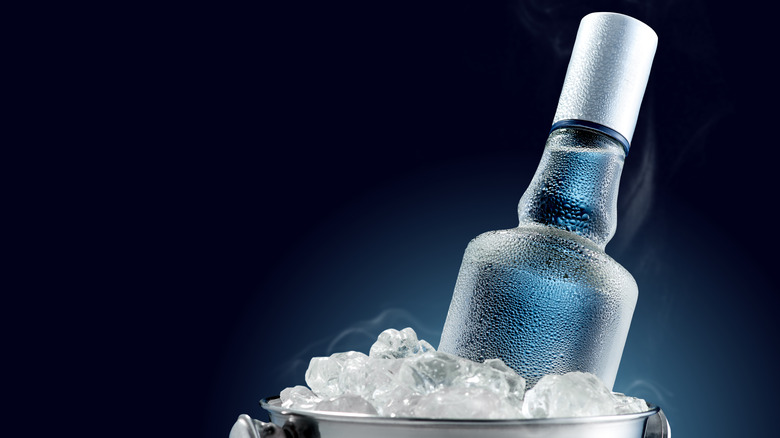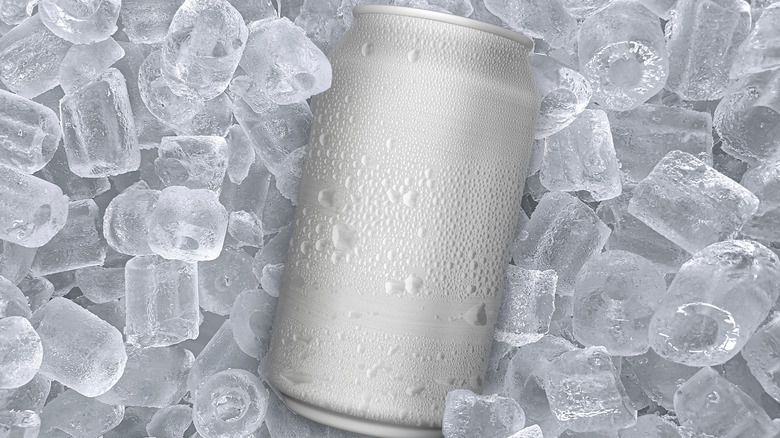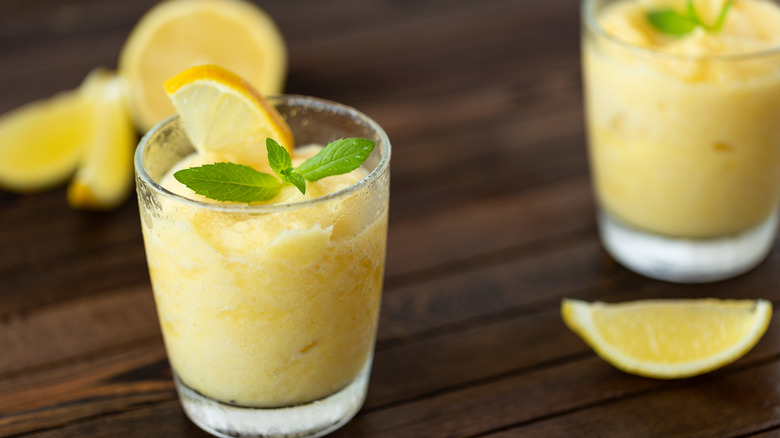Plot Twist: Liquor Can Actually Freeze, Just At Super Low Temperatures
We all know the kitchen freezer is often the arctic home of the bottle of vodka standing tall between the petite peas and ice cubes. But as a can of beer could tell you, vodka's chilly hideout is not a safe place for all alcohol.
Every type of alcohol has its freezing point, so while vodka stays in a liquid state in home freezers, beer will expand, freeze, and, ultimately, explode. (Anyone who has popped a warm brewski in the freezer for a quick chill and then forgotten about it because the game is on has learned this lesson the hard way.)
While many home bartenders have learned from trial and error, knowing the freezing points of different alcohols can save you a lot of mess and hassle, especially if you are mixing various frozen cocktails made with different alcohols. So, before you plan the next luau or birthday party, take a moment for this science lesson on alcohol.
The different freezing points of alcohol
The FDA says home freezers should be set to a temperature of 0 F (-18 C). If your freezer does not show its exact temperature, a freezer thermometer can help assure you it is cold enough for your drinks (and safe enough for your food).
Each type of alcohol has a proof, which is twice its alcohol percentage. The higher a spirit's proof, the lower its freezing point. For example, vodka is typically about 40% alcohol or 80 proof. The freezing point for vodka is -16.5 F (-27 C), which is why it does not freeze in most freezers.
On the other hand, lower-proof alcohol, like wine, with an alcohol content in the tens and low teens, is primarily composed of different liquids, namely, water and fruit juices. So, wine has a higher freezing point than liquor, turning frosty at about 20 F (-6.7 C).
But how's this for party trivia — even pure ethanol alcohol can freeze! Its freezing point is -173.2 F (-114 C), so it is far cooler than the kitchen ice box but interesting to know, nonetheless.
How to make mixed drinks with your freezer
If you are asking yourself, does that mean I can't make ice-cold drinks in the freezer? Well, not exactly; you can; you have to be extra careful with the clock.
We get it; warm beer is no good, so if you need to chill a six-pack quickly, know that beer freezes (and explodes) after about 90 minutes in a zero-degree freezer. Are you making mimosas? A quick wine chill is ok, but be aware that freezing begins after about an hour. Liquor will typically stay liquid, but if you add other ingredients for a boozy slush, you will want to check on it regularly until it reaches the right consistency.
The material of the drink container is also important to take note of. For example, freezing a glass bottle of wine could be dangerous, leading to a cork eruption or cracked glass.
Following tried-and-true frozen cocktail recipes will help you navigate the nuances of ice-cold alcohol, but leave the tequila on the shelf to bring out its flavors best.


